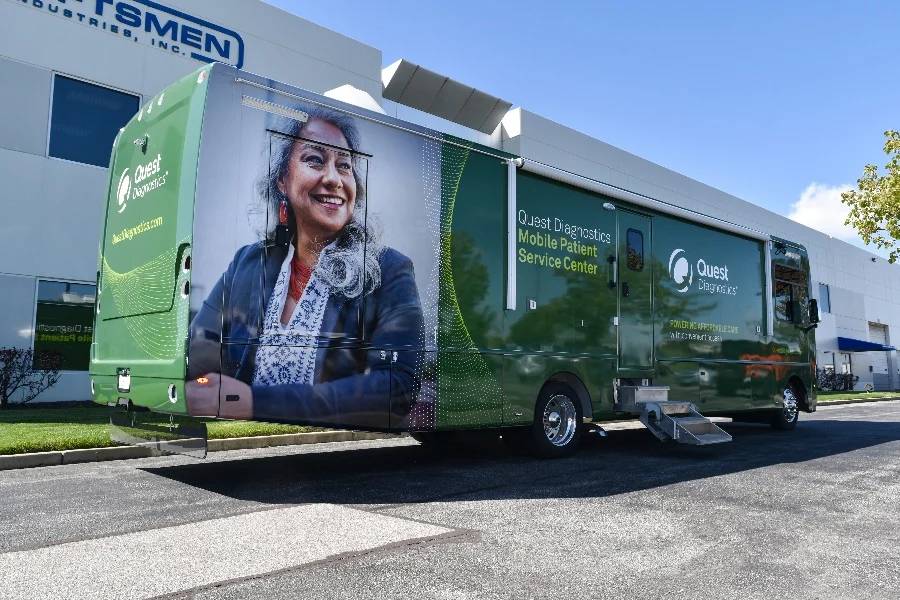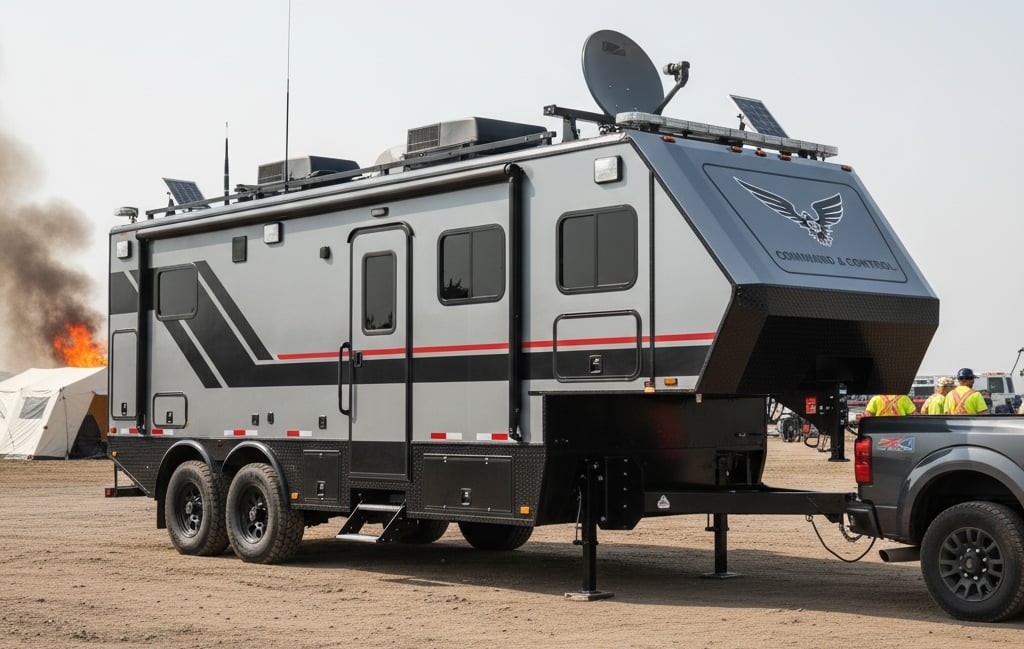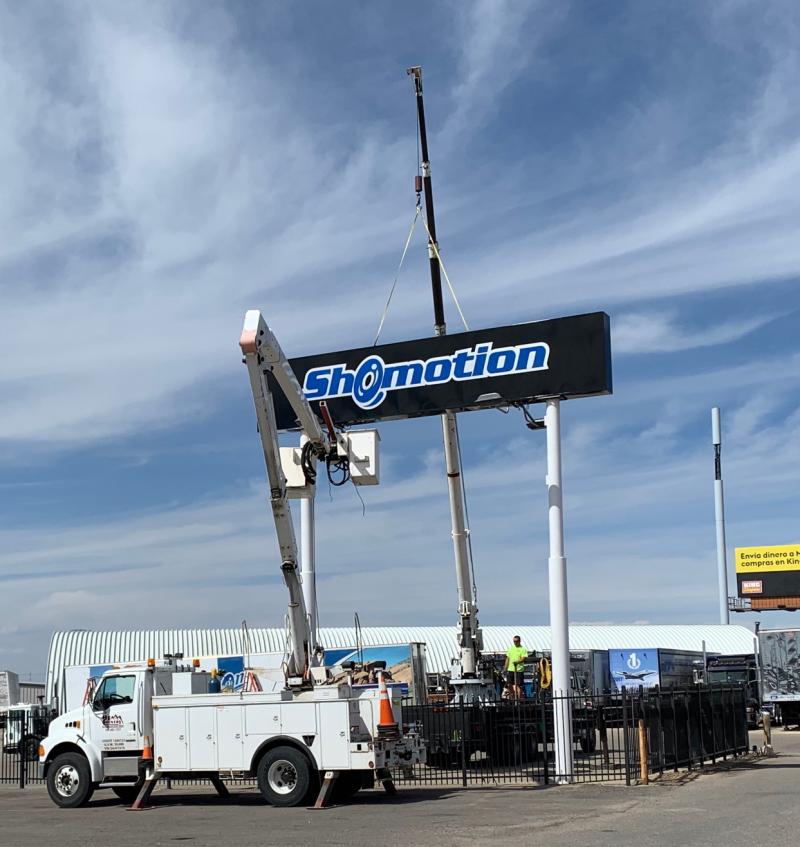Chassis & Suspension Options for Mobile Command Trailer Performance
Selecting the proper chassis and suspension options is crucial for attaining actual performance in any mobile command trailer. From protecting...
4 min read
Craftsmen Industries Aug 5, 2025 5:43:11 AM

In today's world, sustainability is no longer optional; it is a necessity. Organizations across fields, from disaster relief to corporate roadshows and field clinics, are placing environmental impact at the center of operations. Net-zero trailers offer a robust solution, combining mobility with eco-friendly design. These advanced units enable teams to operate off-grid, minimize diesel usage, and reduce their carbon footprint, all while maintaining full operational capability.
This blog will guide you through how to design net‑zero trailers, the key systems involved, and the tangible benefits for your mission and brand. By focusing on clean energy, innovative design, and efficient systems, you're not just reducing emissions, you're future‑proofing your field operations for a sustainable tomorrow.
To reach net‑zero status, energy efficiency must be at the core of trailer design. Efficient systems reduce fuel dependency, allowing sustainable power sources to meet more needs.
Effective insulation significantly reduces the energy needed for heating or cooling:
These design features minimize HVAC usage and extend battery runtime.
Low‑load systems boost sustainability:
Tracking energy use enables teams to optimize consumption and extend their time off-grid.
Efficiency needs smart controls:
A well-configured power management system maintains steady operations while reducing fuel consumption and wear on equipment.
Once you reduce energy demand, you can meet remaining needs with clean power sources. This section explains the systems that make net-zero possible.
Solar is essential for sustainable trailer power:
With enough solar capacity, generators only run when sunlight is insufficient.
Reliable power requires robust storage:
This ensures power continuity even during long campaigns in remote areas.
Smart integration improves sustainability:
A hybrid setup offers both reliability and net‑zero capability in varied settings.
Achieving net-zero requires industrial-grade systems that can meet mission demands.
Generator systems must be optimized for sustainability:
These practices reduce fuel use and air pollution during trailer deployment.
Electrical systems must meet high standards:
Safe electrical design minimizes hazards and ensures reliable operation under harsh conditions.
Durability is crucial when going off‑grid:
These features ensure net‑zero systems remain operational in challenging environments.
Seeing net‑zero designs in action helps illustrate tangible value and ROI.
Net‑zero trailers support diverse initiatives:
These units showcase sustainable operations while meeting mission-critical needs.
Investing in net‑zero trailers delivers multiple advantages:
These benefits combine to ensure operational resilience and public trust in your brand.
To ensure success, address compliance, maintainability, and future scalability.
Net‑zero builds should follow applicable standards:
Compliance safeguards legal operation and supports your environmental reporting.
Longevity requires care:
This extends system life and maintains net‑zero capacity over time.
Sustainability demands forward thinking:
This ensures your trailer remains functional and adaptable for evolving missions.
A net-zero trailer is a mobile structure designed to produce as much energy as it consumes, achieving zero net carbon emissions. It supports sustainable missions by reducing reliance on fossil fuels and promoting energy efficiency on remote or high-impact sites. This makes it a vital asset for eco-conscious operations.
These trailers feature rooftop solar panels, high-efficiency insulation, natural lighting strategies, and intelligent energy systems. Materials are sustainably sourced, and the layouts adhere to passive house principles. Together, these choices reduce energy demand while maximizing the generation of renewable power.
They offer better air quality, access to daylight, and quiet, climate-controlled environments. Ergonomic designs and natural ventilation support wellness, while well-designed interiors improve focus and comfort. This boosts morale and productivity on extended jobsite deployments.
They cut carbon emissions, lower energy costs, and eliminate the need for fuel-powered generators. These trailers also offer quieter, healthier working environments. Organizations benefit from improved worker satisfaction and a stronger sustainability reputation.
Firms like Pepper Construction and Craftsmen Industries lead the industry, using tools like BIM modeling and AR for precision design. Their net-zero trailers are certified for performance and durability, serving construction, research, and field operation sectors.
Creating a net‑zero trailer is more than a sustainability gesture; it is an operational advantage. By combining energy-efficient design, renewable power systems, and rugged infrastructure, you build a mobile asset that performs under pressure and aligns with green goals.
Whether you're supporting relief efforts, running eco-conscious campaigns, or equipping remote teams, net‑zero trailers demonstrate leadership in innovation and responsibility.
To explore Custom Trailers built for green missions. Let's create mission-ready, eco-conscious mobile command assets together.

Selecting the proper chassis and suspension options is crucial for attaining actual performance in any mobile command trailer. From protecting...

Imagine walking down the main street in your hometown or city. What images, buildings, and signs come to mind? Do some businesses stick out amongst...

Successful on-site brand activations are not a stroke of luck; they are the outcome of meticulous planning, precise execution, and seamless...